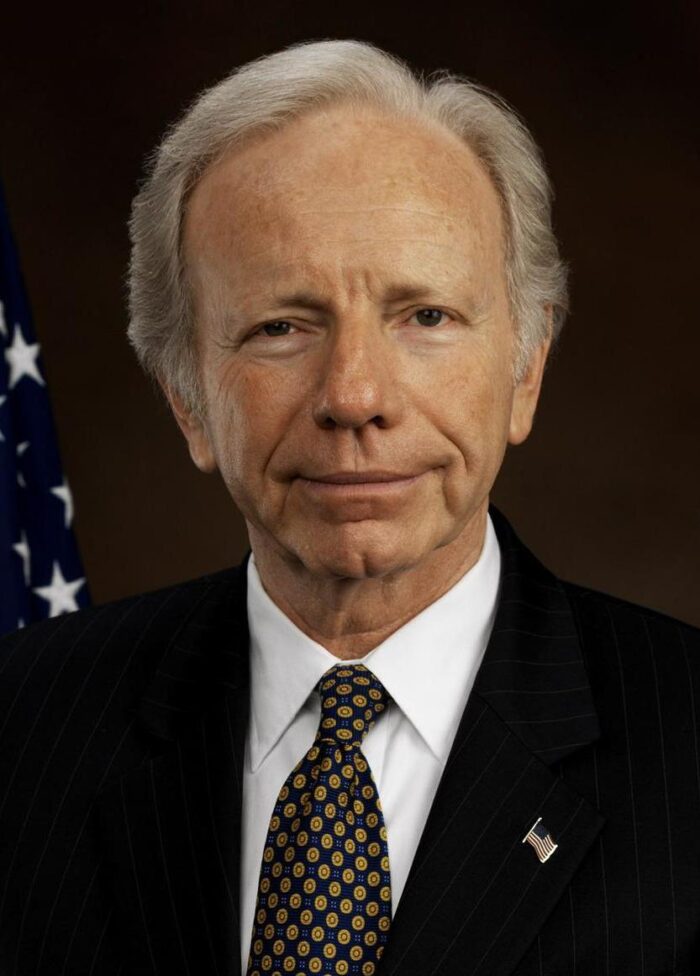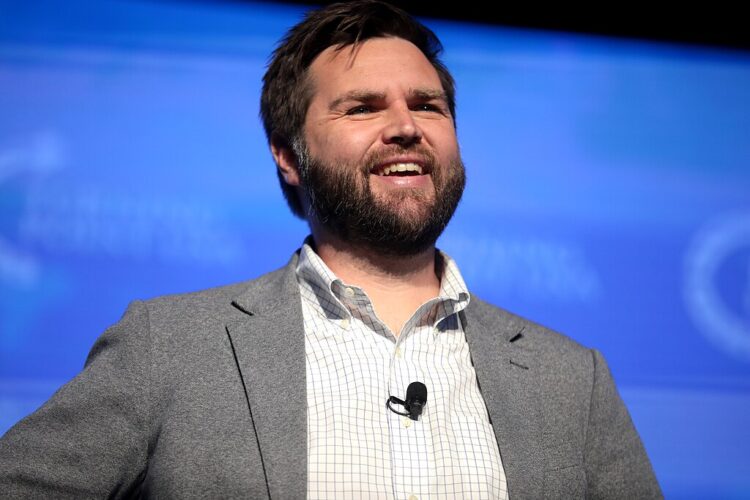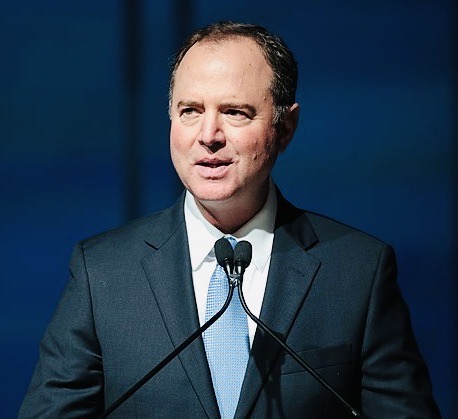At the end of it all, Josh Shapiro was unable overcome a distinct disadvantage in his bid to become Kamala Harris’ running mate in the forthcoming U.S. presidential election.
Shapiro thereby fell short of becoming the second Jewish American to be selected for that job. In 2000, Vice President Al Gore chose Joseph Lieberman, a senator from Connecticut, as his potential vice president.

Shapiro, the governor of Pennsylvania, was hampered by one overwhelming impediment: his strong identification with and support of Israel. This was his Achilles heel.
His Jewish faith may also have been a stumbling block.
That these factors may well have led Harris to choose Tim Walz, the governor of Minnesota, as her vice president is a telling commentary on Israel’s declining image in the Democratic Party and the country at large and the persistence of antisemitism in the United States.

Harris, the party’s nominee for president after incumbent Joe Biden exempted himself from the race, must have been concerned that Shapiro, the governor of Pennsylvania, might be a liability, particularly among Muslim, progressive and leftist voters.
Yesterday, the Harris campaign denied claims that Shapiro’s religion or pro-Israel sentiments were considerations in her calculations.
“Assertions that Vice President Harris did not select Governor Shapiro based on his religion or views on Israel are absolutely ridiculous and offensive,” an unidentified aide said. “Vice President Harris has an unwavering commitment to Israel’s security … and will always combat antisemitism whenever and wherever she sees it.”
J.D. Vance, Donald Trump’s running mate, claims that Shapiro’s Jewish background was indeed a barrier. As he put it at a rally in Philadelphia, “I genuinely feel bad that for days, maybe weeks, the guy actually had to run from his Jewish heritage because of what the Democrats are saying about him. I think that’s scandalous and disgraceful. Whatever you believe, whatever disagreements on policy you have about somebody, the fact that the vice presidential race, on the Democratic side, became so focused on his ethnicity, I think, is absolutely disgraceful, and it’s insulting to Americans, whatever background you’re from.”

What is undeniably true is that Shapiro, a committed Zionist, faced pressure from left-wing and pro-Palestinian elements inside and outside the party to drop out.
Shapiro’s candidacy was opposed not only by progressives within the party such as Representative Ilhan Omar and Senator Bernie Sanders, but by a coalition of left-of-center groups ill-disposed toward Israel.

Some of Shapiro’s detractors were clearly in Hamas’ camp. On the whole, they were critical of Israel within the context of a wide range of interrelated issues: Israel’s military campaign in the Gaza Strip, its occupation of the West Bank, and Prime Minister Benjamin Netanyahu’s opposition to a two-state solution.
These critics were supportive of the anti-Israel encampments Palestinian students and their allies illegally set up on university campuses throughout the United States.
On a more general level, they disagreed with Shapiro’s endorsement of vouchers for private schools, a position that alienated teachers’ unions, a key Democratic constituency.
Shapiro’s most vocal opponents hailed from the Democratic Socialists of America, Dear White Staffers — composed of anonymous pro-Palestinian workers in the U.S. government and Biden’s administration — and IfNotNow, an anti-Zionist Jewish organization.
In pursuit of their goal to derail Shapiro’s candidacy, they established the “No Genocide Josh” website and circulated anti-Shapiro posts on social media.
In all fairness, Shapiro was well placed to be vice president. In an op-ed piece in The New York Times on August 3, Mark Penn, a pollster and an advisor to President Bill Clinton and his wife, Hillary, wrote that Shapiro, a centrist, could have been helpful in refuting the perception that Harris is too left-wing to win the election against Trump, her Republican adversary.
“An emphatic and persuasive remedy to that problem would be to pick … Shapiro as her running mate,” he argued. “Shapiro … would send a signal that Harris is not captive to the left and that she puts experience ahead of ideology … He would provide balance to the ticket.”
And since Pennsylvania is a critical battleground state essential to victory, Shapiro’s inclusion on the Democratic ticket would have been wise, Penn noted.
As for Shapiro’s Jewishness, Penn claimed that Americans, having already voted for Barack Obama to be their president, are “a lot more focused on party unity and stopping Donald Trump than on race and religion. Remember that Joe Lieberman … deepened the heft, experience and integrity of the ticket led by Al Gore.”
Shapiro, a 51-year-old observant Jew who was elected governor in 2022, has visited Israel often and proposed to his wife in Jerusalem. He has been outspoken in his defence of Israel, blaming Hams for igniting the Gaza war, and decrying the hostile environment that some Jewish students faced at some universities.
He supported the dismissal of Elizabeth Magill, the president of the University of Pennsylvania, amid accusations that she tolerated a climate of antipathy toward Jewish students.
He endorsed a two-state solution, lambasted Netanyahu as “one of the worst leaders” in Jewish history, and claimed he had mismanaged the current war in Gaza.
But when Shapiro was a university student, he signed up for a special program that required him to work on an Israeli army base. And in a Philadelphia Inquirer op-ed piece, he wrote that Palestinians “will not coexist peacefully” with Israel because they are “too battle-minded” to do so.
Shapiro is doubtless pro-Israel, but so were all the contenders from Walz to Senator Mark Kelly of Arizona and Governor Andy Beshear of Kentucky.
So why was Shapiro singled out for opprobrium?
Representative Adam Schiff of California, a contender for the U.S. Senate, believes he was the object of an antisemitic double standard.

Representative Richie Torres of New York agrees. “The reason he is treated differently from the rest? Antisemitism.”
Amy Spitalnick, the chief executive officer of the Jewish Council for Public Affairs, said he was the only serious vice presidential candidate who was targeted in personal attacks related to Israel.
Case in point: Walz, 60, a former high school teacher, football coach and retired army officer, visited the Middle East in 2009 during which time he met both Israeli Prime Minister Benjamin Netanyahu and Syrian President Bashar al-Assad.
In 2010, he said, “Israel is our truest and closest ally in the region, with a commitment to personal freedoms and liberties, surrounded by a pretty tough neighborhood.”
As a congressman, he voted to allocate foreign aid to Israel. He endorsed the 2015 Iran nuclear deal, which was supported by most Democrats but reviled by the Israeli government.
In the wake of Hamas’ October 7 attack on Israel, Walz ordered flags in Minnesota to be flown at half-mast. He criticized the massacre and Americans who did not condemn it. “What was evident … was the absolute lack of humanity, the terrorism and the barbarism,” he said. “That’s not a geopolitical discussion. That’s murder.”
Since then, however, he has displayed a tolerance for critics who want the United States to distance itself from Israel’s prosecution of the war in Gaza.
Last spring, when about 18 percent of Minnesota voters declared themselves to be “uncommitted” in Democratic primaries to protest Joe Biden’s support for Israel, Walz said they should not be dismissed. “We’ve got to bring these people back in and listen to what they’re saying,” he said. “Take them seriously. Their message is clear, that they think this is an intolerable situation and we can do more, and I think the president is hearing that.”
This past April, he adopted a middle-of-the-road policy, condemning hostility toward Jewish students at campus protests against Israel, while voicing sympathy for pro-Palestinian protesters’ messages on Gaza.
“I think when Jewish students are telling us they feel unsafe … we need to believe them, and I do believe them. Creating a space where political dissent or political rallying can happen is one thing. Intimidation is another. All of us agree the situation in Gaza is intolerable. What happened on October 7 was intolerable.”
Two months ago, when Walz addressed Minnesota’s Jewish Community Relations Council, he called for strengthening Holocaust education and ethnic studies in state schools. Two years ago, Walz denounced as “hurtful and dangerous” comments his Republican opponent made comparing his pandemic policies to the Holocaust.
Bottom line: Walz is basically pro-Israel, but not staunchly so.
